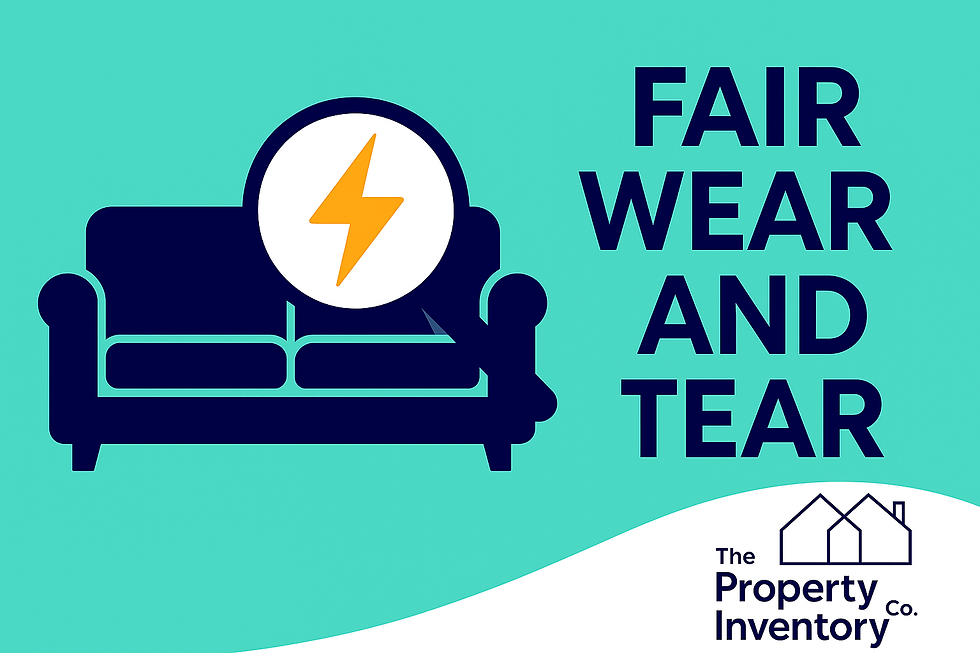Fair Wear and Tear: What It Is and How We Record It
- Property Inventory Co.

- Sep 12, 2025
- 2 min read

The phrase “fair wear and tear” is one of the most debated issues between landlords and tenants. At The Property Inventory Company, we deal with this daily, and as experienced clerks, we know how important clear evidence is when disagreements arise.
What Is Fair Wear and Tear?
Fair wear and tear means the natural deterioration of a property and its contents over time, caused by normal, everyday use.
It’s not damage — it’s expected ageing. For example:
Slightly worn carpets after several years of use
Minor scuffs on walls
Loose door handles after heavy use
What Is Damage?
Damage goes beyond natural use. Examples include:
Stains or burns on carpets
Broken furniture
Holes in walls
Excessive dirt or neglect
How Clerks Record It
At TPIC, we provide detailed written descriptions and high-resolution photographs at both check-in and check-out. This creates a clear comparison, so fair wear and tear can be distinguished from genuine damage.
We also consider:
Length of tenancy
Number of tenants
Quality and age of fixtures/furnishings
Whether deterioration is reasonable or excessive
Why It Matters
Without an impartial inventory, landlords risk unfair claims against tenants — and tenants risk losing deposits unfairly. Our role as clerks is to make sure both sides are protected with independent, factual evidence.
Takeaway: Fair wear and tear is inevitable — but clear, professional inventory reporting ensures disputes are avoided.
Book your professional inventory / check in / check out report today with The Property Inventory Company.
Call 01435 508118 / 07428 821141 or email contact@propertyinventoryco.co.uk.
We cover Eastbourne, Tunbridge Wells, Heathfield, Hailsham, Hastings, Bexhill, Lewes, Brighton and all areas in between across East Sussex and Kent.




Comments